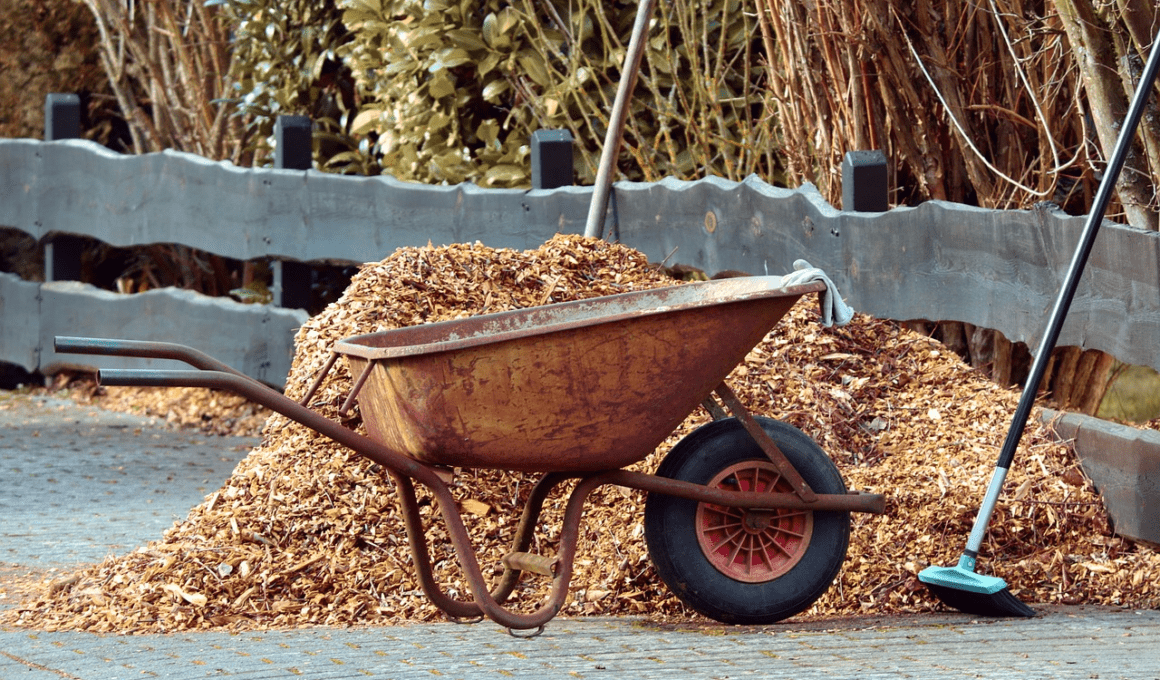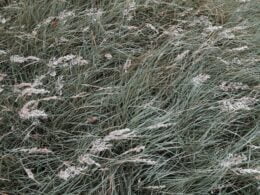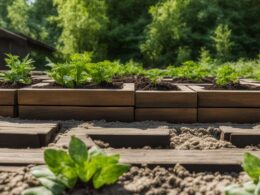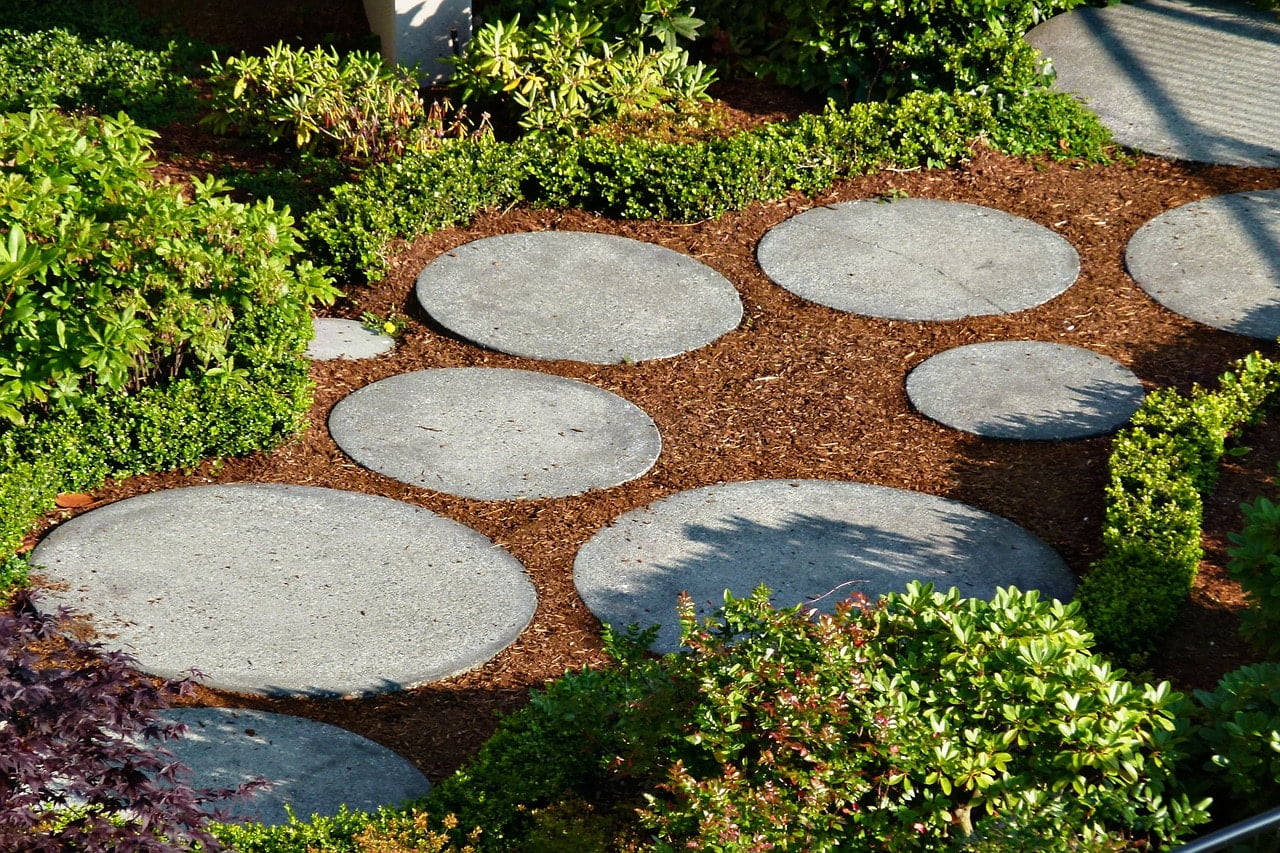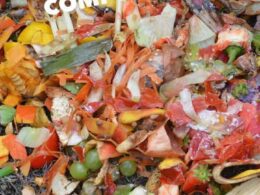Are you tired of wasting money on new mulch every year? Don’t throw out your old mulch just yet! Reusing it can not only save you money, but it can also benefit your landscaping and the environment.
There are so many ways to reuse old mulch, from using it as a garden bed base or soil amendment, to adding it to your compost pile for recycling nutrients. Plus, it can also be used for walkways, protecting plant roots during winter, and controlling weeds.
Inorganic mulch can even be used as a barrier for soil erosion or in potted plants for better drainage. So, before you toss out your old mulch, consider all the benefits of recycling it and the ways it can serve your landscaping needs.
Quick Takeaways
- Reusing old mulch has numerous benefits for both landscaping and the environment, such as reducing waste in landfills and recycling nutrients for new plant growth.
- There are many ways to reuse old mulch, such as using it for walkways, protecting plant roots during winter, and controlling weeds between garden rows.
- Old mulch can be renewed and refreshed by raking through it and sifting out larger bark or wood particles.
- Incorporating compost with old mulch can offset nitrogen depletion and improve soil health for new crops.
Ways to Reuse Mulch
You can save money and help the environment by reusing old mulch in various ways. One of the simplest ways is to use it for walkways and natural-looking pathways. This will not only provide a safe and stable surface for walking, but it will also give your garden a cohesive and polished look.
Another way to reuse old mulch is by protecting plant roots during winter and acting as a slow-release fertilizer. Simply spread the mulch around the base of your plants to insulate the roots from harsh weather and to slowly release nutrients as it decomposes.
Sifting techniques and mulch preservation methods can also be used to reuse old mulch. Sifting techniques involve removing larger bark or wood particles from the old mulch to create a finer texture that can be used for topdressing or improving the soil.
Mulch preservation methods include storing old mulch in bags or containers for winter plant protection or adding it to a compost pile for recycling nutrients. By reusing old mulch, you can reduce waste in landfills and improve soil health, while also saving money and benefiting your garden.
Benefits of Recycling Mulch
Recycling mulch offers numerous benefits for improving soil health and promoting plant growth. Using old mulch as a soil amendment can help balance the nutrient levels in the soil, ensuring that plants have the necessary nutrients for healthy growth. By incorporating compost with old mulch, you can also offset nitrogen depletion and further improve the soil’s nutrient balance.
In addition to improving soil health, recycling old mulch can also help reduce waste in landfills and save you money. Instead of throwing away faded mulch, you can reuse it as a garden bed base or spread it between garden rows to control weeds and add nutrients. By reusing old mulch, you can also renew its color by raking it through, and decomposed mulch can provide micronutrients for plant development.
So, don’t throw away your old mulch – give it a new life in your garden and enjoy the benefits of recycling.
Mulch for Different Landscaping Needs
For different landscaping needs, mulch can serve as a protective layer for plant roots during winter and as a slow-release fertilizer. Mulch selection is important when considering the specific needs of your plants and soil. For example, hardwood mulch is great for preventing soil erosion, while pine straw is best for acid-loving plants like blueberries or azaleas.
Proper application of mulch is also essential to ensure its benefits. A layer of 2-3 inches is recommended, making sure to leave space around plant stems to prevent rot. Mulch should also be replenished every year as it breaks down and loses its effectiveness.
Using mulch between garden rows can also control weeds and add nutrients to the soil. This method can be especially helpful for vegetable gardens where plants are closely spaced and require a lot of nutrients.
Inorganic mulch, such as gravel or rocks, can be used for functional areas of the yard like walkways or around heavy pots to prevent tipping. Remember to always research the best type of mulch for your specific landscaping needs and to apply it properly for the most benefits.
Frequently Asked Questions
How long can old mulch be stored before it loses its effectiveness as a soil amendment?
To keep old mulch effective for soil amendment, store it properly in a dry area with good ventilation. Composting is another option to break down the mulch and release its nutrients back into the soil.
Is it safe to reuse mulch that has been treated with herbicides or pesticides?
When reusing old mulch, safety concerns arise if it’s treated with pesticides or herbicides. Using contaminated mulch can harm plants and the environment. It’s important to consider the environmental impact and choose safer options.
Can old mulch be used as a natural weed barrier for vegetable gardens?
You can use old mulch as a natural weed barrier in your vegetable garden. Mulch alternatives include leaves, straw, and grass clippings. This method provides benefits like retaining moisture and preventing soil erosion, keeping your garden safe and healthy.
What are the best ways to remove old mulch from a garden bed without damaging plants?
You can remove old mulch from your garden bed without damaging plants by using plant-friendly mulch removal techniques. These include gently raking the mulch away from the plants, using a leaf blower, or using a garden vacuum. Be sure to dispose of the old mulch properly.
Can inorganic mulch be used in areas where there are pets or wildlife?
Looking for pet friendly alternatives? Inorganic mulch can be used in areas with pets or wildlife, but be aware of environmental impact. Consider using natural materials like pine straw or shredded leaves instead.
Conclusion
So now you know that old mulch is not something to be thrown away! There are so many ways to reuse it and save money while helping the environment.
You can use it as a garden bed base, soil amendment, or even add it to a compost pile for recycling nutrients. It can also be used for walkways, protecting plant roots during winter, and controlling weeds.
Inorganic mulch can be used as a barrier for soil erosion or in potted plants for drainage.
Don’t waste old mulch anymore! Give it a second life and enjoy the benefits it can bring to your landscaping and the environment.





